 .
.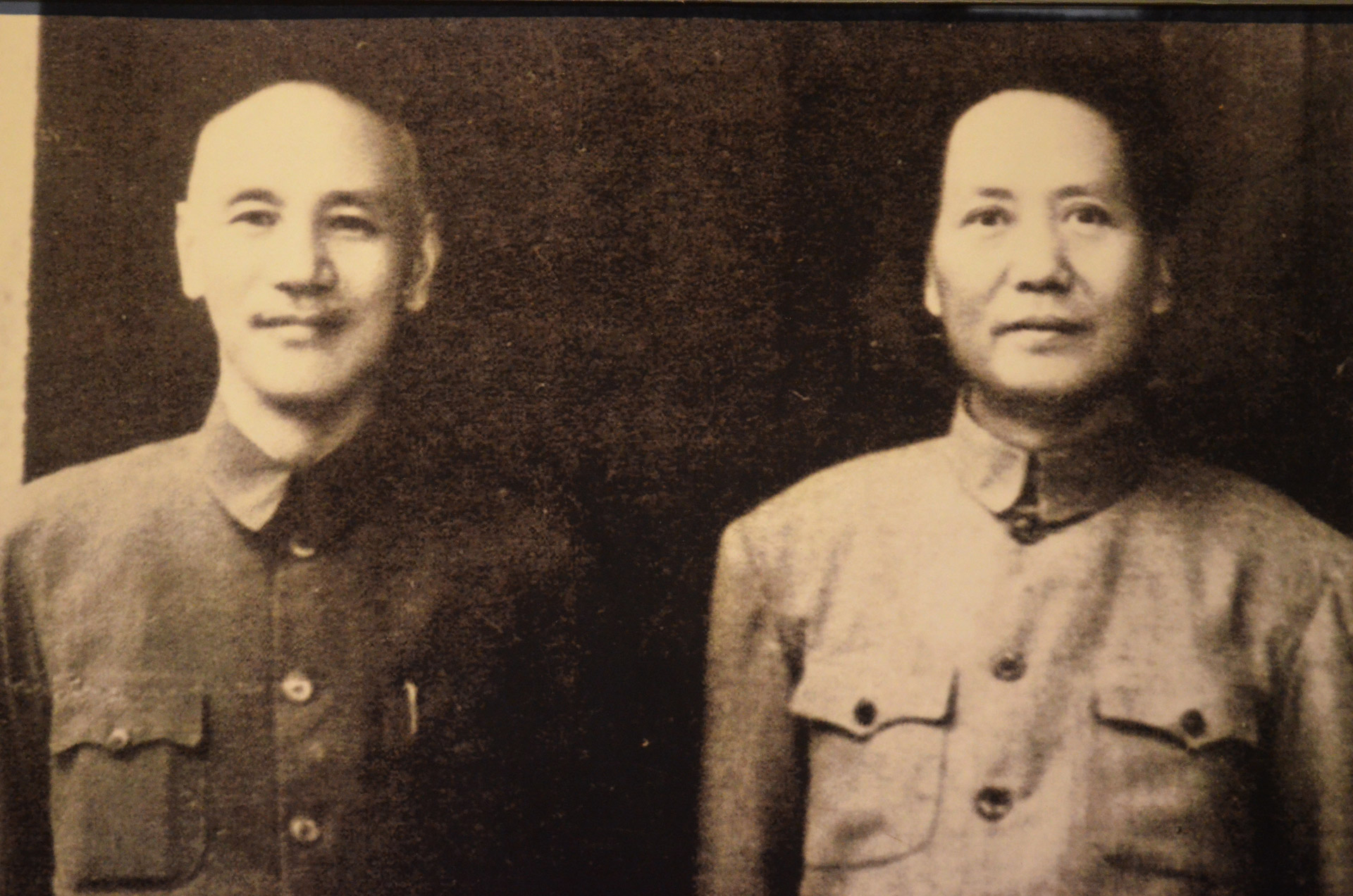

曾經叱吒風雲的蔣介石與毛澤東,在中國近代史上有輝煌燦爛的一頁記載,物換星移,中國尚未統一,和平扔在遙遙無期.
Harvard Researcher Says Chiang Kai-shek Fighting Back against China Was A Disguise.
Researcher of Harvard’s Fairbank Center for Chinese Studies, Jay Taylor, also known as the first western scholar who researched the diaries of Chiang Kai-shek, points out that Chiang was dealing with countries in power to protect the Chinese culture and traditions.
Taylor believes that soon after Chiang retreated to Taiwan, he gave up his plan to recover the lost Mainland China. Chiang prepared to take root in Taiwan, but he kept pretending to want to recover China as a bargaining chip to stabilize domestic affairs and negotiate with the US.
Apple Daily reports, Taylor was once an US diplomat stationed in Taipei, and he served at the Embassy of the United State in Beijing after China–United States relations were established. He served as Deputy Assistant Secretary of State for Intelligence and Research. Jay is the first western scholar to research the diaries of Chiang Kai-shek, and is also the western authority on Chiang Kai-shek and Chiang Ching-kuo.
Those diaries of the former presidents of the Republic of China are on deposit at the Hoover Institution pending the creation of a suitable repository on Chinese territory. Members of the Chiang family screened the Chiang Kai-shek diaries at Hoover so that they could be made available for research.
To ensure their preservation, and to conform to the wishes of family members, use copies of the handwritten pages are available at the Hoover Archives. The copies reflect the fragility and poor condition of the originals, with some pages water damaged, stuck together, or missing entirely. In addition, some sentences were crossed out in ink on the originals.
Given the uninhibited nature of many personal comments in the diaries, family members have chosen to keep some passages private and have thus redacted these from the use copies. Although in most cases the individuals named are deceased, family members wish to protect the feelings of living descendants or other relatives. Recognizing the historical significance of the diaries in their entirety, however, family members have authorized that the redacted passages be released in 2035.
The Hoover Institution at Stanford University, for almost nine years, has had on deposit extraordinary archival material, including diaries and other papers, from Chiang Kai-shek, and his son, Chiang Ching-kuo. The Hoover Institution has provided access to redacted copies of the Chiang Kai-shek diaries in our reading room, and the collection has become one of the most popular in the archives, being viewed by hundreds of people from around the world each year. Hoover’s goal is to provide as much of the material as possible for scholarly study.
Having received conflicting claims of ownership to the materials, on September 24th, 2013, the Hoover Institution announced that it was seeking clarity on the ownership of the Chiang family diaries and papers on deposit at the Hoover Institution. The Hoover Institution is looking for legal clarity so it can either return the materials to the proper owner(s) or continue to hold the materials for the proper owner(s), and is not advocating for one outcome over another.
Since then, the Institution learned that the Academia Historica (the Republic of Chinas highest-level organization concerned with affairs related to the nations history in Taiwan) claims to have an interest in the deposit. Consequently, as we seek to discover the rightful owners and appropriate treatment of the deposit, the Academia Historica, as an agency or instrumentality of the Republic of China, has been added to the interpleader action, which enlists assistance from the court to determine ownership of the deposit. In its continuing efforts to work with those with any legitimate claim to the deposited materials, the Hoover Institution has reached out to all of the defendants, including the Republic of China, to let them know about the action before the filing.An inventory of the Chiang Kai-shek Diaries is available.

.蔣介石的日記似乎沒有記載中國大陸的錦秀江山是如何丟失的?
蔣介石似乎也沒有自我批判與自我檢討?
存放於史丹佛大學胡佛研究所內的蔣介石日記,經過15年的整理與歸檔工程告一段落,但是扔然而沒有看到史丹佛大學管理小組與研究小組的任何報導.?
學者JT.曾經評論蔣介石與毛澤東爭奪天下的功過,並不是批判蔣介石,因為從未看到蔣介石自我批判的手稿真跡,國際戰略專家認為,海峽兩岸扔存在許多未解秘密的檔案文件與照片,期待有朝1日能夠公開,尤其是1945-1949.這些年的蔣介石日誌是不完全的殘稿.....
Taylor pointed out at the international academic conference, “Sun Yat-sen, Chiang Kai-shek and Soong May-ling in World History,” that whether it was fighting against the Japanese army or building a police state after the KMT retreated to Taiwan, Chiang made decisions based on national interest and through macro strategy. He also took brutal measures to protect Chinese traditional Confucianism, national dignity and interest.
Taylor reiterates that there was emissary between Chiang Kai-shek and Zhou Enlai. He says that several years before former President of the United States Richard Nixon broke the ice to visit China and build a relation with China, Zhou had informed Chiang of the secret interaction between the US and the Communist Party of China to restore diplomatic relations. Chiang hoped to reduce the impact after Taiwan and the US broke off relations.
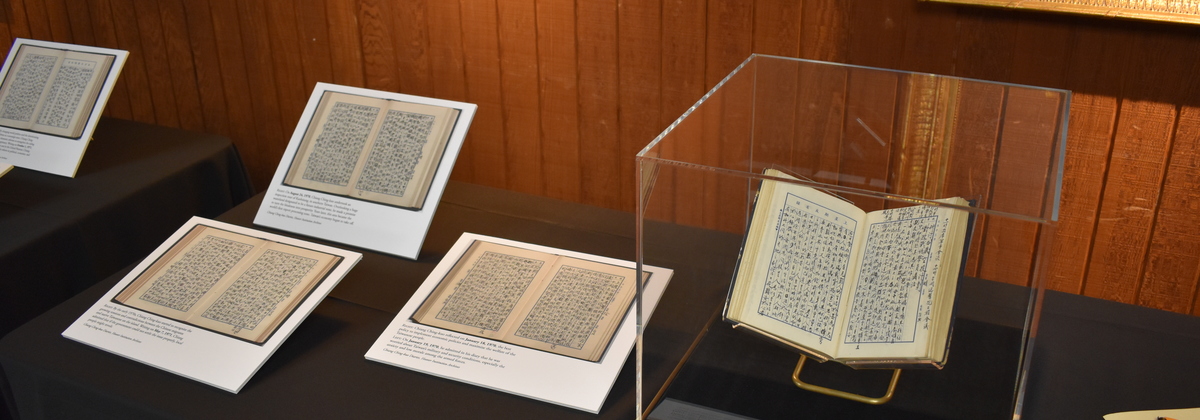
Liberty Times reports, Taylor says that in 1953, Chiang faced the fact that he would stay in Taiwan for the rest of his life and it was impossible to recover China. Chiang was not happy with the US believing that he would fight back against China, and thought the US government didn’t understand that he was merely stabilizing domestic affairs and maintaining the hopes of people. But it seemed as if the US always misunderstood Chiang, until he eventually told the US directly that he would not fight back against China.....
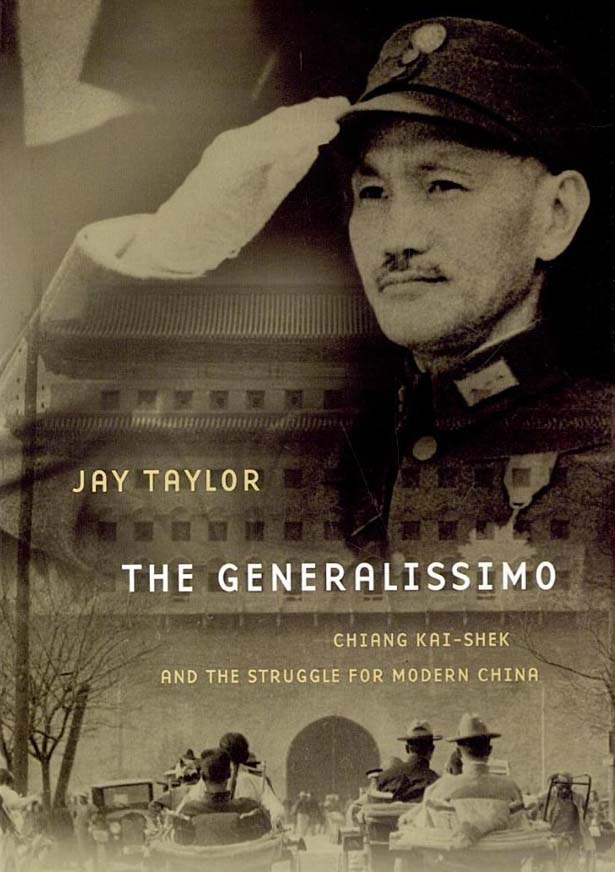
....................................................
Jay Taylor, The Generalissimo Chiang Kai-shek and the Struggle for Modern China..
Taylor proves able to achieve numerous breakthroughs due to his wide selection of historical records, including both positive and negative accounts of Chiang’s career. Taylor is even more convinced that Chiang Kai-shek “was motivated less by the desire for personal power than by a vision of a unified, modern, independent China” after examining Chiang Kai-shek’s diaries, which have only recently been made available to the public by Stanford University’s Hoover Institute (and which Taylor quotes 420 times). He draws attention to the fact that Chiang was a revolutionary leader during a turbulent era, with China splintered into warring fiefdoms and facing rebellion from the Chinese Communist Party. Lacking adequate mechanisms to address the conflicts within the nation, using unofficial means to accomplish goals proved to be a fairly normal path to take. Viewing all of Chiang Kai-shek’s decisions from a “nation comes first” perspective allows this biography to stand out because of its richness in the variety of historical records it contains. Viewing all of Chiang Kai-sheks decisions from a “nation comes first perspective” allows this biography to rationalise Chiangs actions throughout his career, not distinguishing between those that were approved or frowned upon by the public. This makes room for a richness in the variety of historical records that distinguishes the biography.
4In addition, Taylor recognises Chiang Kai-shek’s contributions to China in terms of how he successfully countered the Japanese invasion, his commitment to a unified nation, and how he laid the foundation for democratic government in Taiwan, thereby setting the stage for Taiwan’s evolution into a Chinese model of democratic modernisation. Seeing Chiang in a more positive light, Taylor points out many reasons why he should not shoulder sole blame for the failure to keep China unified, as well as for a less-than-reputable record of upholding human rights. For example, in considering the civil war between the KMT and the CCP, Taylor believes that it was not only a conflict between two political parties, but also one that was determined by the relative strengths of each party’s international backers. The commitments that the United States made to Chiang were not steady and were sometimes no more than lip service. In contrast, the Soviet Union’s assistance towards Mao Zedong, despite being sometimes hidden, proved much steadier. Furthermore, the White Terror instigated by Chiang that led to the imprisonment of many innocent intellectuals, when considered in the light of the enormous threat that Communist China posed — Chiang had to mobilise the populace and consolidate their loyalty to him — could well be regarded as a necessary evil. When in retrospect we take into account the relative political stability and economic prosperity experienced by Taiwan since the 1960s, Taylor believes that the extraordinary measures taken by Chiang during the 1950s could be forgiven.
Of course we cannot determine Chiang Kai-shek’s success or failure based on just one biography. Yet, compared to other biographies, Taylor’s analysis of the relationships between Chiang, the United States government, and General Stilwell allows readers to see the situation in a new light. The United States government used the Anglo-American integrated command headed by Eisenhower in Europe as its model for the war in Asia. However, the United States government forgot to consider that in the European war Americans made up the great majority of Allied ground as well as air forces, while the Chinese Army consisted of only Chinese soldiers. Another factor to consider was that the United States viewed England as a more important ally than China. In order to provide sufficient support for England during its war against Germany in Egypt, the United States would often send resources earmarked for China over to England on very short notice. Although the United States government was providing limited support towards China, it was also eager to integrate the Chinese Army into the American system led by General Stilwell. To gain the miniscule support that the United States was providing, Chiang Kai-shek had no option but to capitulate to US decisions, even when it meant that China had to sacrifice. General Stilwell knew very well that the situation between the United States government and China was a weak point for Chiang, and used it as an advantage. These conflicts caused Chiang Kai-shek to demand the removal of General Stillwell from his position, and also led the US government to form a negative impression of Chiang. Based on Chiang’s diaries and newly found historical records, Taylor points out that some of the blame should be laid on the discrimination by Americans towards the Chinese. In contrast to other Western scholarly views that avoid the sensitive topic of discrimination, Taylor adds a new factor to the reasoning of why Chiang Kai-shek and the United States government maintained a rocky relationship after World War II..............
Title: Chiang Kai-shek diaries
Creator: Chiang, Kai-shek, 1887-1975...............
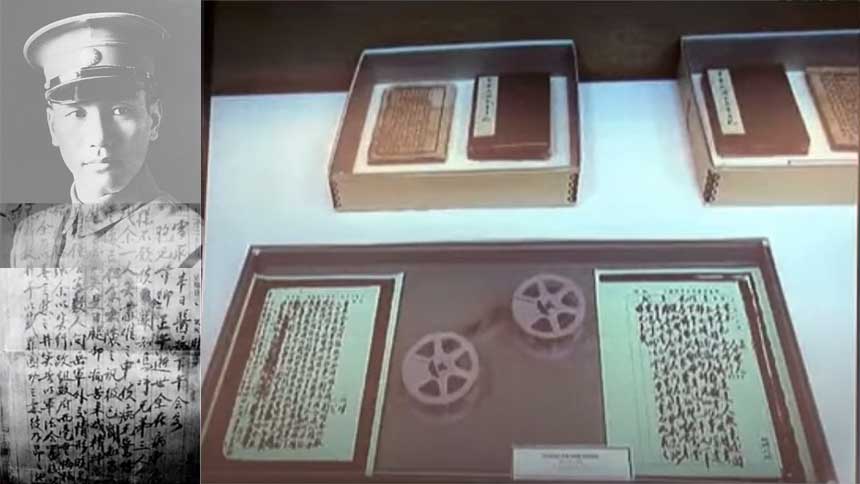


.....https://youtu.be/0U-xPELI1ws.
學者楊天石,中國大陸研究蔣介石“第一人”,今年82歲高齡,也是全世界第一個看到蔣介石57年日記全部原件的人。他從2008年開始,歷時10年完成一套“揭露真實蔣介石”的書.
蔣介石日記由蔣介石從1919年直到1972年患病止,用毛筆親筆工整在日記簿上書寫蔣介石通過日記記錄每天生活、工作、思想,甚至個人反思,都如實記錄.
The Hoover Institution of Stanford University is working diligently to seek clarity on the ownership of the Chiang family diaries and papers on deposit at the Hoover Institution. The Institution has filed an interpleader action (a process by which a party asks a court to determine the ownership interests of property with multiple claimants) to enlist assistance from the Court. The Hoover Institution is not adverse to any party but has determined this as the appropriate next step after being unable, for several years, to resolve competing ownership claims.
The Hoover Institution Library and Archives are among the world’s most important repositories of unique archival materials and rare publications on political, social, and economic change in the modern era. For almost nine years, the Hoover Institution has had on deposit extraordinary archival material from Chiang Kai-shek, who ruled mainland China for twenty-two years and Taiwan for an additional twenty-six years, and his son, Chiang Ching-kuo, who ruled Taiwan for sixteen years. In accordance with the wishes of depositor Chiang Fang Chi-yi (Elizabeth Chiang), the Hoover Institution has provided access to redacted copies of the Chiang Kai-shek diaries in our reading room; the collection has become one of the most popular in the archives, being viewed by hundreds of people from around the world each year...
蔣介石日記未曾記載中國大陸的錦秀江山是如何失去?
蔣介石從未自我檢討與自我批判.
蔣介石領導之下的中國國民黨政府及軍隊說穿喇,就是一窮群烏合之眾的地皮痞流氓與土豪,文武官員橫行霸道,那就是文官貪污瀆職,武將怕死不打仗,倒賣軍火及各式各樣的軍需物資,尤其是美國援助的各式各樣武器,裝備,糧食,罐頭,醫藥用品等等,過半數流入到黑市交易,令美國人痛心疾首,自從與美國史迪威將軍事件之後美國政府深刻感受到蔣介石領導之下的中國國民黨政府及軍隊無能與衰敗,並有意透過特殊管道聯絡中國共產黨毛澤東的政府及軍隊.
蔣介石自從194509-194909.這樣短暫的時間與中國共產黨的政府及軍隊正式鬥爭的歷史事件記錄確實但是超過1/2以上都是失敗的案件.
以下摘要重點分析請讀者門參考,中國國民黨的政府及軍隊是如何失去中國大陸的錦秀江山,
紅星照耀全神州,青天白日不再現,
和平奮鬥救中國,億萬黎民祈太平.
1:政治國防軍事篇:中國國民黨及軍隊雖然少數為正式黃埔陸軍官校訓練成為軍官領導人,但是其多數的軍隊素質低落,當兵打仗混飯吃,但是遇到與中國共產黨真正的大型戰爭就令當別論,投降中國共產黨的不在少數,盜賣軍火及軍需物資更事家常便飯,逃兵事件天天有,如此一來豪無軍紀的軍隊如何能打仗.
蔣介石的軍事謀略無論是戰略及戰術的運用,遠不及毛澤東領導的敵中國共產黨的政府及軍隊,如此一來過招數回合究已經分出勝負江山自然是屬於後者得之.
2:外交方面中國國民黨政府及軍隊過度依賴美國政府的決策以及軍事援助,相信外國的月亮比較圓比較亮,巧克力及奶粉好吃好喝,但是蔣介石始終無法與白美國駐華軍事將領溝通協調,尤其是與史迪威將軍的事件爆發之後,中國國民黨政府的外交重心放在親美,而忽略與歐洲諸國的往來,造成日後由美國政府搖控蔣介石領導之下的中國國民黨政府及軍隊,最後終於導致中國國民黨政府及軍隊全面性的失敗與撤退台灣省.
3:經濟財政因素1945-1949.整體的中國經濟迅速惡化,通貨膨脹在社會各階層展開,民不聊生政府沒有有效的政治發展經濟與財政的政策,多數是貪官污吏貪贓枉法的把持財政大權,導致於惡性循環最後失敗,只好搬走中央銀行內的庫存黃金與白銀,運送到台灣省.
4:社會各階層的老百姓不支持蔣介石領導之下的中國國民黨政府及軍隊,換句話說就是支持由毛澤東領導之下的政府及軍隊,由此觀之民心的對向與否,就是成功與失敗的關鍵因素之一,所以中國大陸錦秀江山的失去首要因素就是蔣介石領導之下的中國國民黨政府及軍隊得不到民心.
5:蔣介石與毛澤東都是領袖型的人士,但是論及謀略與才華,蔣介石遠遜色於毛澤東,筆者在此請讀者們自行由他們2人的傳記評論中找尋答案.
6:歷史的千秋萬世向來都是成王敗寇,毛澤東入主北京稱帝,掌管紅朝大國(中華人民共和國),而兵敗如山倒的蔣介石卻是落草為寇,(台灣省台北縣的草山,有蔣介石的行館及國民大會中山樓等建築物)後來草山改名為陽明山,以區別毛澤東的朝笑蔣介石落在草山稱王.
7:得民心者得天下,歷史的巨輪永遠不停的向前行駛滾動,順天應民乃是常理,如今中國共產黨政府的改革開放,取得重要的成果,經濟實力已經成為世界性的第2名,國防軍事武力為世界性第三名.
8:台灣省自古以來就是隸屬於中國千秋萬世都是如此唯中華民族偉大的復興收復台灣省勢在必行完成中國的統一.
9:如今台灣省各政黨,依舊玩弄民主的政黨輪體替的選舉遊戲,騙取選票混日子.
10:奉勸諸位同意海峽兩岸簽署和平協議,遵守一個中國政策,完成和平統一,不要犧牲掉善良的台灣老百姓,因為戰爭降臨時子彈與導向飛彈是不長眼睛的,何必要實現毛澤東的遺言,解放台灣,血洗台灣,你們台灣人願意接受?............
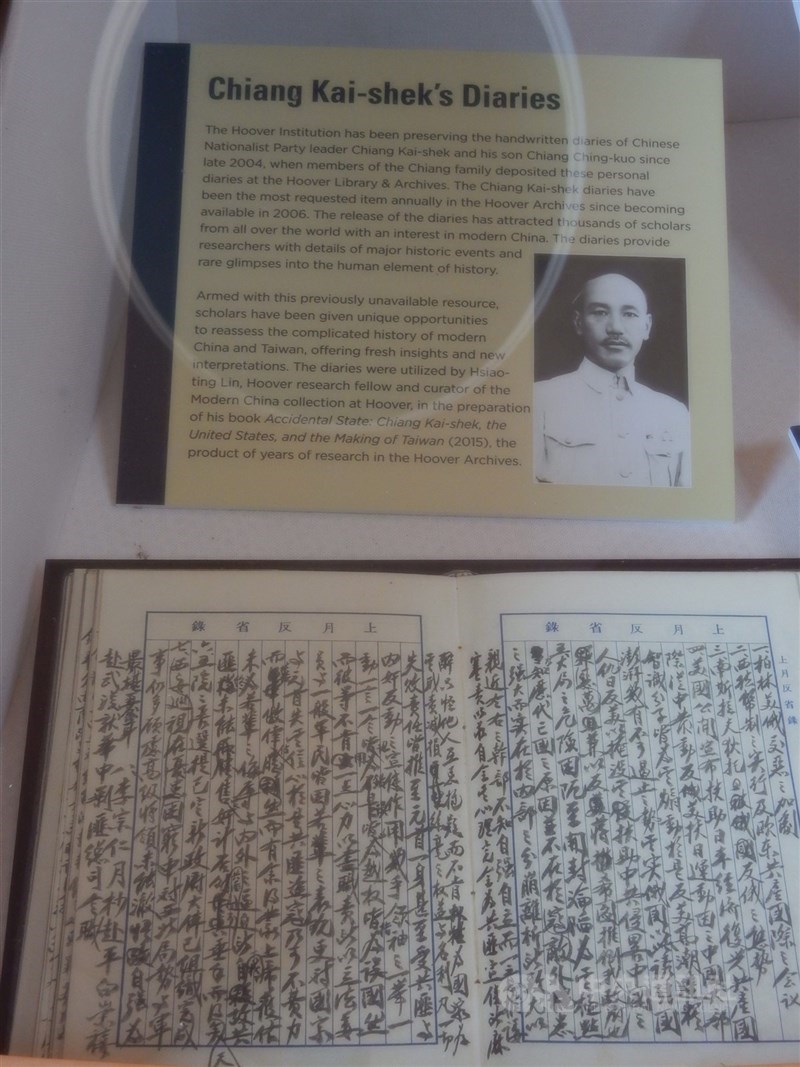
蔣介石日記理未曾記載中國大陸是如何丟失的隻字片語?
牠難道真的沒有自我批判與自我檢討?










